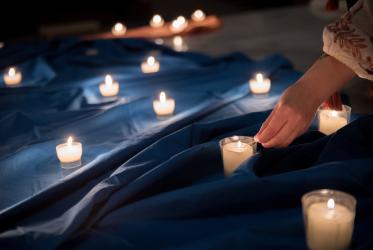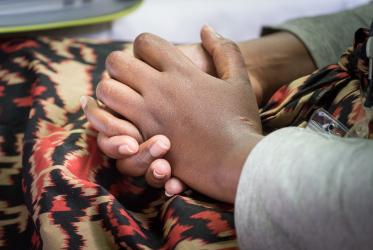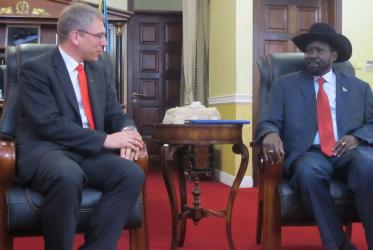Displaying 1 - 12 of 12
Sudanese church leaders express hope that new pact will end war
08 October 2020
#WCC70: Diaconal unity in a long-forgotten crisis
25 October 2018
Preventing incitement to violence which could lead to atrocity crimes in Africa
09 - 11 May 2016
Addis Ababa, Ethiopia
Pilgrimage of justice and peace gives vision for WCC programmes
22 November 2014







